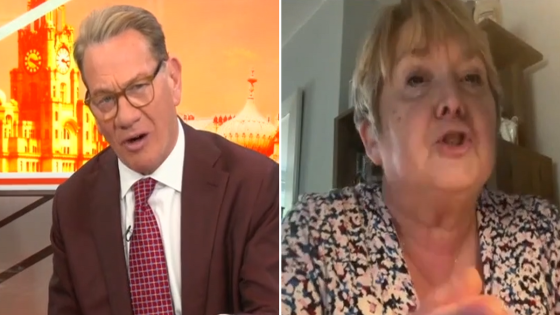NEW YORK — The world has long known two Michael Cohens.
There’s the fire-breathing “fixer” who famously bullied Donald Trump’s foes. And there’s the social media resistance hero he became after breaking with his former boss, lobbing insults at Trump with the same expletive-laden fury he used to reserve for Trump’s enemies.
On Monday, the jury in Trump’s Manhattan hush money trial met a third, one who seemed to manifest in real time on the witness stand: mild-mannered, self-deprecating, just-the-facts-ma’am. (In fact, he said ma’am more than 100 times when addressing prosecutor Susan Hoffinger.)
It was a reinvention that could define and even determine the outcome of Trump’s criminal trial, in which the former president is charged with orchestrating a scheme to prevent porn star Stormy Daniels from revealing an extramarital affair on the cusp of his 2016 presidential victory.
That’s because Cohen, while recasting himself, also revealed perhaps the most damaging bit of evidence yet: a meeting just days before Trump assumed the Oval Office, in which, according to Cohen, Trump reviewed and endorsed a plan to reimburse him for paying off Daniels.
That is a critical piece of testimony because the alleged reimbursement scheme — and records related to it — are at the crux of the 34 felony charges against Trump. Prosecutors say that Trump, while reimbursing Cohen, falsified the reimbursement as a series of legal expenses in violation of New York law. And Cohen’s description of the January 2017 Trump Tower meeting is the first piece of direct evidence to suggest that Trump personally green-lit the scheme.
But it is also a tricky piece of evidence for prosecutors, because the jury may need to rely solely on Cohen’s account of it.
In Cohen’s telling, only three people attended the meeting: Cohen, Trump and former Trump Organization CFO Allen Weisselberg. Of those three, two — Cohen and Weisselberg — are convicted felons with a history of dishonesty. Weisselberg is currently serving jail time for perjury and appears unlikely to testify in the trial. Trump is under no obligation to testify in his own defense, which would open him up to cross-examination. And if he did testify, he would surely dispute Cohen’s version of the meeting — or deny that it happened at all.
That means prosecutors need the 12 jurors to trust Cohen, and Cohen alone, on what really happened in that meeting in which a significant chapter of the cover-up was purportedly written.
That’s where Cohen’s efforts to rebrand himself inside the Manhattan courthouse came into play. For nearly six hours, Cohen displayed uncharacteristic modesty, dispassion and a measured temperament, even while he acknowledged his former bouts of anger, bullying, lying and egotism.
For example, he recalled seething when he was told Trump would not consider him to be his White House chief of staff in 2017. (“It was more about my ego than anything,” Cohen recalled.)
He said he never sought to be a lawyer, crediting his grandmother for coaxing him into the profession in part because his family was full of doctors and lawyers. (“I wanted to go to Wall Street,” he said.)
And most significantly, Cohen acknowledged becoming incensed when at the end of 2016 — a year in which Cohen orchestrated deals to silence at least two women from disclosing extramarital affairs with Trump and even fronted $130,000 of his own money to cover the payment to Daniels — he received a bonus check that was slashed by two-thirds from the year before. And Trump hadn’t even paid back the $130,000 yet.
“Even for me, I was unusually angry,” he said, prompting chuckles in the press gallery, where many are acquainted with Cohen’s rage.
In his fury, Cohen said, he confronted Weisselberg. “I actually did a double take and then immediately went to Mr. Weisselberg’s office in the back and in some uncolorful language expressed to him how truly pissed off and angry I really was,” Cohen recalled.
Weisselberg, he said, promised he would help “make this right.” “Take it easy, you know that Mr. Trump loves you,” Cohen recalled Weisselberg telling him.
Just days before Trump took the oath of office on Jan. 20, 2017, Cohen said, the three of them assembled in Trump’s corporate office. There, with Trump looking on, Cohen said Weisselberg outlined a plan to pay Cohen back in monthly installments for the money he had shelled out to suppress Daniels’ story — as well as some other costs Cohen had incurred — and then nearly doubled it to cover Cohen’s tax liability as well.
Hoffinger asked if Weisselberg showed Trump a handwritten document laying out the repayment plan.
“Yes,” Cohen replied.
And Hoffinger asked if Weisselberg said, in Trump’s presence, that the payments would be recorded as a retainer for legal services.
“Yes,” Cohen said.
Cohen said Trump backed the plan and added a sweetener: agreeing to name him “personal counsel to the president,” a title Cohen said he planned to monetize as a consultant.
Despite Cohen’s mild demeanor on the witness stand, he did offer some tantalizing pieces of testimony.
Cohen told jurors that when he sought to negotiate a deal with Daniels, Trump instructed him to “just get past the election, because if I win, it will have no relevance because I’ll be president, and if I lose, no one will care.”
That assertion bolsters prosecutors’ theory of the case: that the payoff to Daniels was a form of election interference that deprived voters of information and violated election laws. Trump’s lawyers have suggested that the motive for the payoff was not political, but merely to protect Trump’s family from embarrassment.
But Cohen said that when he asked how Daniels’ claims might affect Trump’s relationship with Melania, Trump told him, “Don’t worry.”
“He goes, ‘How long do you think I’ll be on the market for? Not long,'” Cohen recounted.
“He wasn’t thinking about Melania,” Cohen said. “This was all about the campaign.”
Source Agencies


